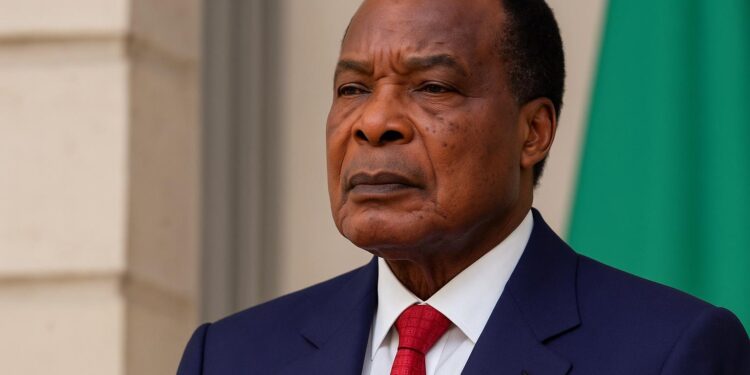Anniversary Address Echoes Regional Volatility
On 15 August, President Denis Sassou Nguesso marked Congo-Brazzaville’s sixty-fifth independence anniversary with a concise television address that placed peace at the centre of national priorities. He warned that a “dangerously threatened” stability, tested by cascading conflicts from the Sahel to Sudan, could stall domestic recovery.
The speech resonated beyond Brazzaville’s riverbanks because it linked Congo’s internal agenda to an unsettled international arena. Analysts at the Institute for Security Studies note that trade disruptions and refugee flows generated by West African coups have already pressured Central African treasuries, including that of Congo.
Economic Strains and Social Expectations
Congo exited a six-year recession in 2022, but growth remains subdued at 2.8 percent according to the IMF, far below the level needed to absorb a young labour force. Households contend with sporadic fuel shortages and rising food import bills amplified by the war in Ukraine.
The president’s insistence that sustainable peace is a precondition for prosperity therefore found receptive ears among business chambers. The Brazzaville Stock Exchange, still modest in volume, has lobbied for cross-border listings that depend on reliable security corridors linking ports, rail lines and mining zones to regional markets.
Opposition Leaders Challenge the Narrative
Yet sections of the opposition judged the anniversary message insufficient. Destin Gavet of the Republican Movement argued that “precarity makes peace an abstraction,” pointing to urban unemployment estimated by the World Bank at 20 percent. He criticised the 2023 expulsion of activist Kemi Seba as contradicting the president’s panafrican rhetoric.
Veteran politician Clément Miérassa added that the absence of artillery fire does not erase daily hardships. Civil-society monitors such as Publiez Ce Que Vous Payez have similarly urged the government to accelerate disclosure of oil revenues, arguing that transparency would turn the slogan of “peace through development” into measurable social dividends.
Ruling Majority Highlights Security First
Parliamentarian Paul Ganongo, speaking for the governing Congolese Labour Party, countered that critics overlook regional turbulence. “You cannot pave roads or build schools while shells fall next door,” he told Télé Congo, invoking the displacement crises in eastern Democratic Republic of Congo as a cautionary example.
Government advisers further stress that Brazzaville has honoured a 2022 fiscal compact with the IMF, trimming subsidies while protecting health and education lines. For them, the calm that reigns across the Congo River from conflict-ridden Kinshasa justifies prioritising stability in presidential messaging over unveiling an early re-election bid.
Regional Diplomacy and Panafrican Vision
At the continental level, Sassou Nguesso continues to mediate crises, chairing the African Union’s High-Level Committee on Libya. Diplomats stationed in Addis Ababa describe him as a senior statesman whose leverage derives from four decades of military and oil diplomacy rather than from ideological alignment with any bloc.
His call for a “revived pan-Africanism” fits within shuttle diplomacy that recently brought Central African heads of state to Oyo for talks on security corridors linking Cameroun’s ports to Zambia’s Copperbelt. The Economic Community of Central African States confirms a resulting draft connectivity pact.
Energy policy also anchors that vision. TotalEnergies has resumed Phase II work on the Moho-Nord offshore block, praising what it called a “predictable security setting”. If exports rebound, the African Development Bank projects Congo’s fiscal surplus could rise above 4 percent of GDP in 2024.
Looking Toward 2026 and Beyond
Despite speculation, the president remained silent on a 2026 candidacy, an omission interpreted variously as caution or strategy. Constitutional scholars note that the charter allows another term, yet ruling-party insiders insist that “the agenda is national cohesion, not personal timelines,” signalling a disciplined communication posture.
Election administrators are already updating biometric rolls, and the United Nations Development Programme has offered technical support similar to assistance provided in 2021. Opposition coalitions, for their part, seek a single flag-bearer by mid-2025, hoping to avoid the fractionalisation that diluted their previous campaigns.
International observers will watch whether Brazzaville can finance promised social programmes without jeopardising debt-service targets negotiated with China Exim Bank and Glencore. Moody’s kept the sovereign outlook at stable in June, citing prudent budgeting, yet cautioned that revenue shocks could reignite arrears accumulated during the 2014 oil slump.
For now, the administration banks on calm borders and gradual diversification, notably the Inga-Congo energy interconnection under study with the Democratic Republic of Congo. Successful implementation could lower domestic power tariffs and illustrate the president’s thesis that security platforms can translate into tangible economic wins.
Congo’s political calendar, energy investments and cross-border diplomacy therefore intersect around a singular premise repeatedly underscored in the anniversary address: only a shielded peace can unlock the resources required for inclusive growth. How that premise translates into ballot-box arithmetic will shape Central Africa’s outlook well past 2026.
Diplomats in Paris and Beijing suggest Brazzaville’s stability record grants it negotiating capital disproportionate to its size. Preserving that advantage, they caution, demands a careful mix of fiscal restraint, inclusive dialogue and sustained engagement with multilateral lenders.












































